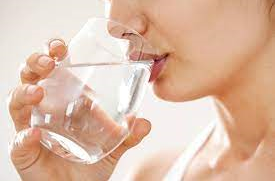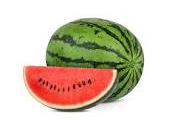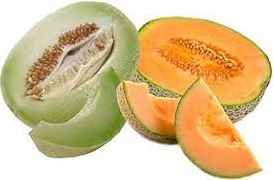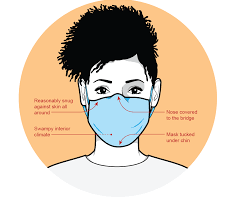Good skin care is important to help your skin stay in good condition
Categories: Night wear Western
Good skin care is important to help your skin stay in good condition. An effective routine can help prevent acne, treat wrinkles, and help keep your skin looking its best. Skin care is important because it protects your skin, which is the body’s largest organ. Good skin care helps your skin stay in good condition. With proper care and maintenance, your skin can look better than ever before. Your skin sheds itself daily, a major reason you must begin taking care of it. Future skin can be dull with lots of imperfections if not cared for properly. That’s why it is so important to take care of your skin now to protect your future skin.
Do You Really Need a Body Care Routine?
You can maintain healthy skin through a healthy lifestyle. Skin is the body’s largest organ. When healthy, its layers work hard to protect us. But when it’s compromised, the skin’s ability to work as an effective barrier is impaired. Your skin is the window to your body that reveals the stories of your life. From acne breakouts during your teenage years to the radiant glow of pregnancy and the sunspots of aging, both your age and your health are reflected in your skin. Skin regulates body temperature, maintains fluid balance, and controls moisture loss. It also acts as a barrier and shock absorber, recognizes pain sensations to alert us to danger, and protects us against the sun’s harmful ultraviolet (UV) rays. Skin has many functions, making it the ultimate multitasker of the human body. Its most important role is being the first line of defense between our bodies and the outside world, protecting us from bacteria, viruses, and pollution and chemical substances that we encounter in the workplace and at home.
How to Take Care of Your Skin
Our lives are built on habits. From our morning coffee or tea to the side of the bed we sleep on, our routines shape our days and our bodies. While the term “habit” often has a negative connotation, we can also create habits that are beneficial to our health and the health of our skin. From exercise and diet to product choices, here are ten habits that can help you maintain healthy, beautiful skin.
Keep skin well hydrated
It can be especially beneficial to ensure that you keep your skin hydrated. Hydrated skin will be much healthier and will maintain a much better appearance. When you keep your skin hydrated, you can help to offset many of the issues that are common with dry skin.
Use Cool Water to Wash
Washing with cold water affects skin in many positive ways. Acne prevention is one of those potential benefits. Hot water causes blood vessels to dilate more, making your skin appear redder. Cold water is especially beneficial for dry or acne-prone skin. If you have chronically dry skin, hot water can strip your sebum levels (oils) and exacerbate the issue, so cold water is a good alternative.This is beneficial for skin for a number of reasons, namely reducing the appearance of pores and depuffing the face.
Exercise Regularly
Regular exercise is good for you, and it can help you lose weight. regular exercise is good for you, and it can help you lose weight. If you are busy, you have a sedentary job, and you haven't yet changed your exercise habits. The good news is that it's never too late to start. You can start slowly, and find ways to fit more physical activity into your life. To get the most benefit, you should try to get the recommended amount of exercise for your age. If you can do it, the payoff is that you will feel better, help prevent or control many diseases, and likely even live longer.
Make exercise more fun
Try listening to music or watching TV while you exercise. Also, mix things up a little bit - if you stick with just one type of exercise, you might get bored. Try doing a combination of activities.
Drink Water
Drink plenty of water throughout the day to avoid dehydration. Giving your body enough fluids to carry out those tasks means that you're staying hydrated. If you don't drink enough water each day, you risk becoming dehydrated. Warning signs of dehydration include weakness, low blood pressure, dizziness, confusion, or urine that's dark in color. It’s commonly recommended that you drink eight 8 (237-mL) glasses of water per day. It may even reduce the oxidative stress that occurs during high intensity exercise. Drinking water may help reduce headaches and headache symptoms.
Breathe Clean Air
Air is an essential element in human survival, and the fact that this air is pure is an exponential benefit to that survival. For the best quality of life, the air that we breathe must be the purest as possible because air nourishes with oxygen the lungs, the blood and, consequently, the rest of the organs. Surprisingly, indoor air is five to ten times worse than outdoor air, according to several WHO studies, even in urban areas. The environment is everything around you - the air, the land, and the rivers and oceans. Clean air, land, and water help keep us healthy. Some particles in the air are so small you can't see them. It is not good for you to breathe in too much of the tiny particulate matter. Particles in the air can make you cough. If you already have asthma or problems with your heart, don't play near streets with heavy traffic.
Tobacco is the biggest indoor pollutant
Environmental tobacco smoke produces fine particulate matter, which is the most dangerous element of air pollution for health. Environmental tobacco smoke is a contributor of air pollution particles. Tobacco smoke is the No.1 risk factor of lung cancer, accounting for > 85% lung cancer deaths. Air pollution, or haze, comprises ambient air pollution and household air pollution. Tobacco smoke is the single biggest public health threat the world is currently facing. It is estimated that there are 1.1 billion smokers worldwide, and around 8 million people are killed by tobacco smoke each year globally.
Consume Foods that are High in Water
Water is essential for human health, but water alone does not hydrate the body. In fact, people can increase their hydration level and water intake with many foods and other drinks. Eating healthful hydrating foods — especially during warm weather, when the body loses water and vital electrolytes through sweating — can keep hydration levels up and provide a variety of nutrients.
Some Foods that are High in Water
Eating a diet rich in fruits and vegetables is a good way to supply the body with vitamins, minerals, and fiber, while adding to daily water intake. Hydration is about more than drinking water. Many foods contain water and additional nutrients that are vital for good health.
1. Watermelon: Watermelon is around 90% water, which makes it useful for staying hydrated in the summer. It can also satisfy a sweet tooth with its natural sugars.
2. Apple: Apple is filled with soluble fiber, which is the secret to stable blood glucose levels. People who eat at least one apple a day are 28 percent less likely to have type 2 diabetes than those who do not consume apples. Apples can help alleviate both the stomach problems of constipation and diarrhea because of its high fiber content. The pectin fiber in apples can either pull water out of your colon to keep things moving along or absorb excess water from the stool to slow down the bowels.
3. Spinach: Spinach is a nutritious and plant-based source of iron, a mineral that is crucial in transporting oxygen in the blood. Iron is also important for maintaining healthy pregnancies, supporting the immune system, and aiding digestive processes. Spinach features large quantities of vitamin A, which moderates oil production in the skin pores and hair follicles to moisturize the skin and hair. A buildup of this oil can lead to acne. Vitamin A is also necessary for the growth of all bodily tissues, including skin and hair.
4. Honeydew melon: Honeydew melons are almost similar to cantaloupes. The similarity lies in macronutrients, calories, and water contents. However, cantaloupes contain more than double the amount of vitamin C. They also have over 60% more vitamin A. This vitamin form is available as provitamin A carotenoids.
5. Peaches: Peaches are in season during the summer. During this time, they are the freshest and have the most flavor and nutritional value. It is best to choose peaches with taut, fuzzy skin that gives in to pressure slightly. Phytonutrients.
6. Cucumbers: Cucumbers are good sources of phytonutrients (plant chemicals that have protective or disease preventive properties) such as flavonoids, lignans and triterpenes, which have antioxidant, anti-inflammatory and anti-cancer benefits. "We should definitely seek out foods that are nutrient-rich.
7. Carrots: Carrots are a versatile vegetable. People can eat them raw, steamed, boiled, roasted, or as an ingredient in soups and stews. Boiling vegetables can reduce or eliminate some of the vitamin content. Raw or steamed carrots provide the most nutritional value. Carrots are rich in vitamins, minerals, and antioxidant compounds. As part of a balanced diet, they can help support immune function, reduce the risk of some cancers and promote wound healing and digestive health.
8. Oranges: Oranges are a nutritional powerhouse, packed with vitamins and minerals. The most noteworthy of these is vitamin C, a water-soluble antioxidant that prevents cell damage. The fiber in oranges can keep blood sugar levels in check and reduce high cholesterol to prevent cardiovascular disease.
Products with Aloe Vera
Aloe vera may be a source of natural treatment for a variety of skin ailments. Aloe vera gel is widely known to relieve sunburn and help heal wounds.
Use Face Masks
Acute respiratory infections are prevalent and pose a constant threat to society. While the use of facemasks has proven to be an effective barrier to curb the aerosol spread of such diseases, its use in the local community is uncommon, resulting in doubts being cast on its effectiveness in preventing airborne infections during epidemics. Aside from handwashing, the use of facemasks is also valuable in infectious disease control, especially in circumventing droplet transmission.
Get More Sleep
When your body gets the sleep it needs, your immune cells and proteins get the rest they need to fight off whatever comes their way. If you sleep well, you wake up feeling rested. Being rested helps your energy levels soar. When your energy is up, life’s little challenges won’t annoy you as much. When you’re not annoyed, you’re not as angry. If you’re not angry, you’re happy. Not getting enough sleep can lead to heart health problems like high blood pressure or heart attacks. That’s because lack of sleep can cause your body to release cortisol, a stress hormone that triggers your heart to work harder.
Importance of Good Skin Care
If your skin feels oilier in the warmer months, it’s because heat and humidity affect your sebaceous glands, which can lead to breakouts. That’s why it’s important to stick to a whole body skin care regimen and ensure your skin is clean every night before bed. The heat is no excuse to sidestep moisturizer. Keeping your body hydrated helps skin stay clear and look brighter. Choose one enriched with active ingredients to help firm the skin’s surface and boost natural elasticity. Keep well hydrated, cleanse and tone in the morning, put a moisturizer under sunscreen.
















